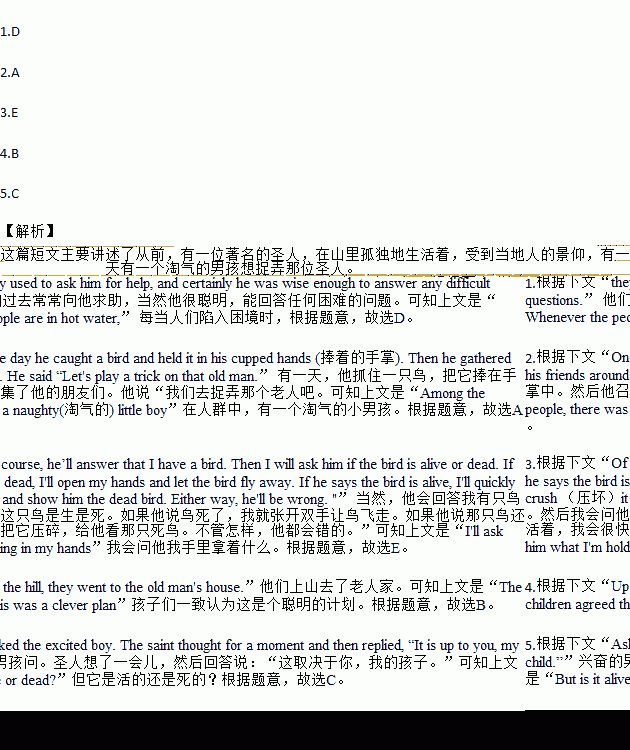题目内容
Once upon a time, there was a famous saint admired by the local people who lived lonely in the hills. 1. _, they used to ask him for help, and certainly he was wise enough to answer any difficult questions. Every time, he could give the right answers and offer the ways to solve the problems for the people who needed.
2.One day he caught a bird and held it in his cupped hands (捧着的手掌). Then he gathered his friends around. He said “Let's play a trick on that old man. 3. . Of course, he’ll answer that I have a bird. Then I will ask him if the bird is alive or dead. If he says the bird is dead, I'll open my hands and let the bird fly away. If he says the bird is alive, I'll quickly crush (压坏)it and show him the dead bird. Either way, he'll be wrong. "
4. Up the hill, they went to the old man's house.
"Saint, we have a question for you, they all shouted. What's in my hands?”Asked the little boy. "Well, it must be a bird, "replied the old man." 5.? "Asked the excited boy. The saint thought for a moment and then replied, “It is up to you, my child.”
根据短文内容,将下面方框内的句子还原到文中空白处,使短文内容完整,通顺(每个选项只能用一次)
A.Among the people, there was a naughty(淘气的) little boy
B.The children agreed this was a clever plan
C.But is it alive or dead?
D.Whenever the people are in hot water,
E.I'll ask him what I'm holding in my hands

